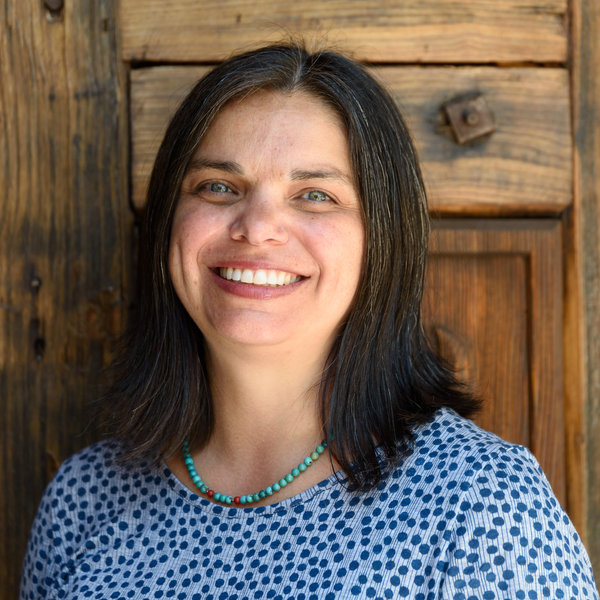Crooked Hallelujah Receives National Book Awards
In the summer of 2016, Kelli Jo Ford (Cherokee) arrived in Santa Fe with a three-year-old daughter and a husband in tow. The family settled into the King Residence on SAR’s historic campus, and Ford began work as the summer’s Indigenous writer in residence. Over the three-month fellowship, Ford crafted and revised a series of short stories that became Crooked Hallelujah. “If you are a writer and a parent,” Ford says, “it can be a real challenge to find the time and space to write. Having the office, the library, and the other resources, I felt like we had everything we needed and that our time was respected and honored. I felt like the space and time were sacred.”
Ford grew up near the Red River, a natural barrier that separates Oklahoma from Texas and the region central to Crooked Hallelujah. Set during the oil bust of the 1980s, it follows Justine and her daughter, Reney, as they move from eastern Oklahoma to Texas.
The narrative describes four generations of Cherokee women and the course of their relationships as they negotiate relocation, economic hardships, and questions of faith.

Kelli Jo Ford, 2016 Indigenous Writer in Residence
The first person in her family to graduate from college, Ford sees the support provided by the women in her family as crucial to her personal success and influential in her current writing.
“As a girl in a family of matriarchs, I spent a lot of time at the feet of strong women, listening past my bedtime. As I find my own voice, I think of the stories as a kind of homage to the women who have shaped me and lifted me up. The mothers, grandmothers, factory workers, waitresses, and artists who drive my work probably border on some kind of obsession for me. . . . Perhaps it’s just that I can’t stop singing the song of my own mothers and grandmothers until I feel I’ve done the melody justice.”
This melody is now reaching the right ears. Ford’s book will be published by Grove Atlantic in 2020, and one of its stories just won the 2019 Plimpton Prize for Fiction from the Paris Review. The book also recently earned the University of Oklahoma’s 2019 Everett Family Southwest Literary Award. From 2011 to 2018, SAR’s Indigenous writer in residence program was funded by Lannan Foundation. In addition to Ford, the fellowship supported seven other emerging Native American writers.
When asked about the importance of supporting Native artists and authors, Ford adds, “I think it’s an important time. In some ways, the past few years might have been viewed as a vacuum for Native writing. But there are, and have been, so many great Native writers who are worthy of more attention—writers like Susan Power, Ernestine Sannkalaxt’ Hayes, and David Treuer. And there are so many up-and-coming writers doing amazing work, like Tommy Orange, Brandon Hobson, Erika T. Wurth, and Casandra Lopez. Who knows how many gifted writers there are out there who just haven’t had the right opportunity or access to something like a writer’s fellowship? That role of cultivating new Native voices is so valuable. I wouldn’t have been able to get the work finished without the time at SAR.”
This piece appears in SAR’s bi-annual print newsletter, SAR Now. Read the current and past issues online here.
SAR members receive SAR Now directly in the mail.